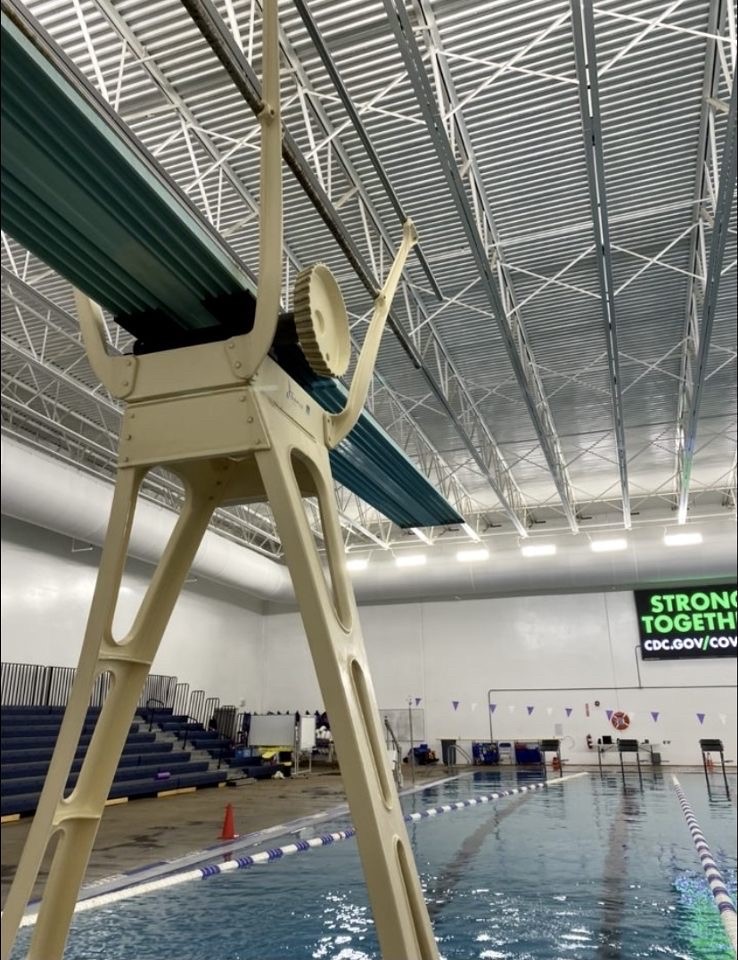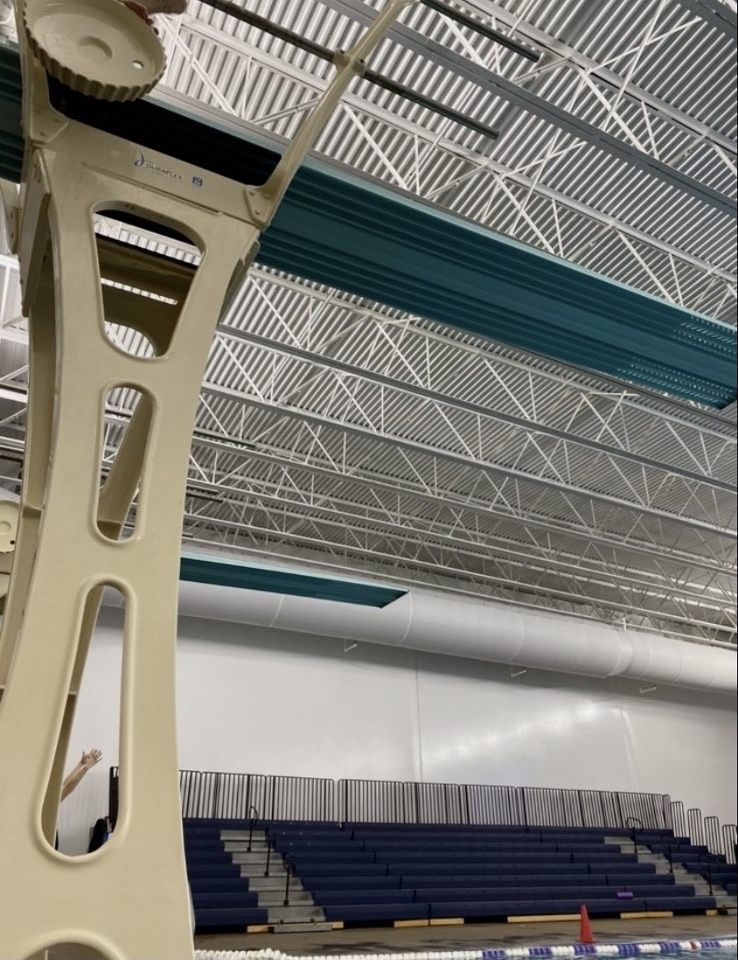
By Kenneth Glidden, Head Culture Co-Writer
Photos from Kenneth Glidden
Here at McKendree, the sports culture is quite immense and for most of us, the sport we participate in has been our sport for years upon years. I started swimming when I was 12 for my school’s team, which only trained once a week. I immediately fell in love and two years later I joined one of my island’s club teams where I swam for another four years before I began my collegiate career here at McKendree.
I had a blast swimming for the Bearcats my freshman, sophomore and junior year, but as all swimmers know, the grind is real; the hard work is the foundation of the sport. Few sports can relate to swimming, since other sports have skills and abilities that allow you to be a great player without being at peak physical fitness. Swimmers (as well as our fellow land swimmers, the track team) have techniques and finesse required for the sport, but skill mainly lies within the questions ‘How fit are you?’ and ‘How much stronger can you get to beat that clock?’
Our successes are not only within beating the opposing team, but also beating your previous self. Trying to stay at peak physical fitness for so many years can really wear you down, and staring at a black line for two to four hours every day can be a tad boring, but the reward you get for that grind–and the feeling you get when you win a race or get a personal best time–is well worth the work. I learned a lot from swimming and I must say, it was really hard to move away from the sport.
Swimming used to be the one stability in my life that I could count on. It was always there for me at the end of my day, all my friends were there, and I always left practice feeling good about myself. This is not only because I could be proud knowing I just put in two hours of solid work, but also because I could leave everything in the pool and use it as an outlet for stress relief or catharsis.
I started competing at the age of 14, which is a fairly old age to start swimming, so I was always playing catch-up with my fellow teammates. I enjoyed this game of catch-up though, as I became gradually better and started meeting my teammates at their level. When I came to university and began swimming for a Division II swim team, things started to change. Freshman year was a great year for me in swimming, but I was definitely toward the back of the pack. This didn’t bother me much because it was exactly what I was used to with my club team. After freshman and sophomore year, COVID-19 hit was devastating to the swimming community.

We train every day, multiple times a day, to maintain the physical fitness we’ve achieved, which declines very quickly. It has been proven that after missing just a few days of practice, it will take your body around two weeks to get back to the fitness level you were at before your break. Now imagine a few months of not being able to get in the water. By the time COVID-19 began to subside and we could start competing again, a lot of swimmers were suffering from burnout–myself included. This was one of the few reasons I decided to change my sport.
I had feelings of completion in gathering all I could learn from the sport on top of burnout after a year and a half of training with no end goals or competition. I spotted an opportunity. I was never able to catch up to my main competitors, so even though I still got to compete, I was never a scorer. Even though I was done with swimming, I still wanted to be a part of the team, as a majority of my friends on campus were, so I decided to make a switch.
After our Conference championship meet during my junior year, we entered the beautiful, beautiful off-season. This is the glorious last few months of the school year, with a minimum of eight hours of practice per week (instead of the mandatory in-season 19 hours a week). That off-season, however, I didn’t attend any swim practices. Instead, I began my journey as a diver.
I have no gymnastics or diving background of any sort, but I loved climbing and jumping off of things as a child. I did long jump and high jump in Track and Field for a semester in high school, so I figured I could handle throwing myself off some aluminum boards and into the water. It was and still is proving to be much harder than it looks, but I believe it was one of the best decisions of my life.
Starting a new sport from scratch is not only a humbling experience, but also a great way to learn new skills and abilities, some of which have lifelong applications. One thing that diving has been teaching me over the last few months is that when you are trying to do something, you have to fully commit (send it!) for the best results. Being scared is normal, but until you take off, execute, and finish with full confidence and effort, you won’t be able to see how well you can actually do. Sometimes, I stand behind the boards in awe of my teammates, pondering what it must be like to be a national competitor training with someone completely new to the sport. I brought this up to my teammate, Ethan Larson, who has been diving since he was in high school.
“It is surprisingly beneficial, in my opinion,” Ethan told me. “While it is true that those who are better than you push you to be better, so can those who aren’t as good as you. Training with someone who has no experience in the sport gives me the opportunity to share my experience with him, which may also give me a new perspective about something while helping/teaching them.” I completely agree with his statement, especially with the idea he mentioned wherein the best way to learn something is to try and teach it to someone else.

I also wanted to get the opinion of a diving coach who has seen good divers, bad divers, and plenty in between. Our head diving coach, Kayley Alioto, is a fantastic coach! She is fun, well-versed in the sport, and brings a great energy when coaching her athletes. I asked her what went through her mind when I asked if I could join the team and how it’s been since I started.
“I was hesitant at first because diving is such a unique sport,” she said. “It’s common for gymnasts to switch to diving because of the similarities with twisting and flipping. You don’t see many swimmers switch to diving, let alone their senior year. The only similarity between swimming and diving is that you wear a swimsuit and use a pool.”
She continued, “The first time I saw you on the boards I could tell you were pretty coordinated. What truly influenced my decision to let you dive was your attitude, work ethic, and goals. I could tell this was a decision you were passionate about and you were willing to put in the work, come to practice, and take every opportunity to learn and get better.” These kinds of attitudes or mindsets seemed to be quite important to Coach Kayley as she spoke, especially when I asked her if she had anything to say to those thinking about switching sports.
“Make sure you have a ‘why?’ Why do you want to make that change? What are your short-term and long-term goals? I would take an athlete with love and passion for a sport that’s willing to train hard over an athlete that is talented but lazy. The athletes that are invested and open-minded are relatively easy to coach and make the most progress.”
I truly believe those words; no matter what sport you play or want to play, if you are passionate, willing to fully buy into the sport, and put in work where work is needed, then you will be successful. It is a hard decision to make, but if you really sit down and think about your options and fully commit to your decision, it will be one of the best decisions of your life.